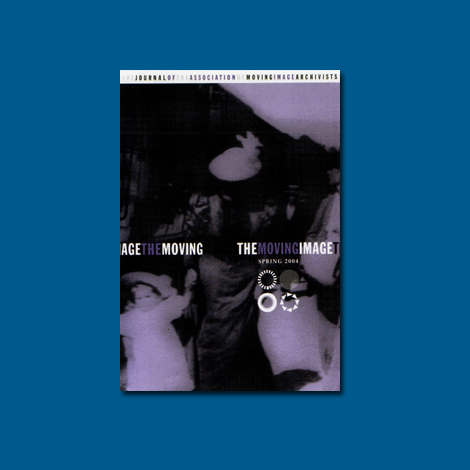Rhythmisking
New Member
I'm not actually too worried about this.
Technology advances. There's always prophecies of doom based on this. But, the thing is, life and the world is profoundly complex and a-static. Prophecies of doom assume a technological advance will become an agent of change and present a threat against the static background of the moment, but everything is dynamic; everything is constantly changing -not just the technology. The world is not the same as it was100 years ago, 10 years ago, or 10 minutes ago. So we can't accurately predict these effects against a infinitely complex, dynamic and responsive system. I think this bodes well for the future of live music, but who knows?
I don't worry about Terminator/Matrix-style futures, because those postulate artificial intelligence becoming artificial life, but that understanding of life is simplistic. It assumes life is nothing but varyingly complex interactions of physics and chemistry. As technologists, we are unable to understand the role feeling and consciousness play in the dynamics of life in the same way that we are able to understand the roles physics and math play, and so we are unable to pass those elements onto, or into, technologies which are based solely on physics and math.
When motion pictures were first developed, the audiences thought the images on the screen were real; that the locomotive coming at them on the screen would actually injure them. With AI we can now fool ourselves into thinking we have created something that is possibly alive and does what we do, but isn't and doesn't. Any technology based on physics and math can process information, but it cannot experience subjectively because it does not exist consciously. Without the ability to experience subjectively, there is no life, no consciousness, and no possibility for subjective, experientially-based understanding.
An AI program might be able to create beautiful music, but it can only generate creations that have been quantified as beautiful by humans who actually experience beauty. So it can 'fake it', and maybe it's a good fake. But "it" -the program- has no awareness of itself, or ability to subjectively experience, so "it" isn't "faking" anything. It is only a new tool being used by people, so it is actually we who have developed new tools that we can use to create beautiful things in a different way. Is it music? Is the program a musician? Kind of depends on how you define those things.
As such, while AI might be able to process quantifications of what beauty, joy, or pain is for a human, based upon human-generated information (which is itself derived from qualitative evaluations of subjective, individual, human experiences) and translate them into theoretical physical situations, no AI can ever understand beauty or joy (or pain/suffering) at the level of consciousness and feeling, and experience that in the moment. It can never, therefore, truly 'create', except after the fact and pre-quantified, so that is really just humans creating by proxy. Using a new tool.
Technology advances. There's always prophecies of doom based on this. But, the thing is, life and the world is profoundly complex and a-static. Prophecies of doom assume a technological advance will become an agent of change and present a threat against the static background of the moment, but everything is dynamic; everything is constantly changing -not just the technology. The world is not the same as it was100 years ago, 10 years ago, or 10 minutes ago. So we can't accurately predict these effects against a infinitely complex, dynamic and responsive system. I think this bodes well for the future of live music, but who knows?
I don't worry about Terminator/Matrix-style futures, because those postulate artificial intelligence becoming artificial life, but that understanding of life is simplistic. It assumes life is nothing but varyingly complex interactions of physics and chemistry. As technologists, we are unable to understand the role feeling and consciousness play in the dynamics of life in the same way that we are able to understand the roles physics and math play, and so we are unable to pass those elements onto, or into, technologies which are based solely on physics and math.
When motion pictures were first developed, the audiences thought the images on the screen were real; that the locomotive coming at them on the screen would actually injure them. With AI we can now fool ourselves into thinking we have created something that is possibly alive and does what we do, but isn't and doesn't. Any technology based on physics and math can process information, but it cannot experience subjectively because it does not exist consciously. Without the ability to experience subjectively, there is no life, no consciousness, and no possibility for subjective, experientially-based understanding.
An AI program might be able to create beautiful music, but it can only generate creations that have been quantified as beautiful by humans who actually experience beauty. So it can 'fake it', and maybe it's a good fake. But "it" -the program- has no awareness of itself, or ability to subjectively experience, so "it" isn't "faking" anything. It is only a new tool being used by people, so it is actually we who have developed new tools that we can use to create beautiful things in a different way. Is it music? Is the program a musician? Kind of depends on how you define those things.
As such, while AI might be able to process quantifications of what beauty, joy, or pain is for a human, based upon human-generated information (which is itself derived from qualitative evaluations of subjective, individual, human experiences) and translate them into theoretical physical situations, no AI can ever understand beauty or joy (or pain/suffering) at the level of consciousness and feeling, and experience that in the moment. It can never, therefore, truly 'create', except after the fact and pre-quantified, so that is really just humans creating by proxy. Using a new tool.


